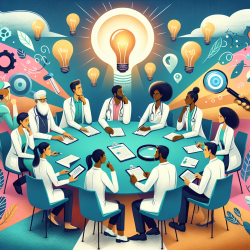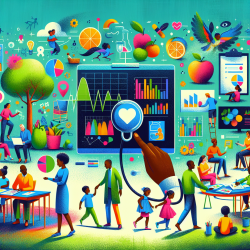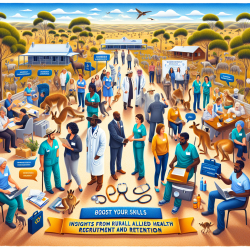Introduction
Understanding the complex nature of transgenerational trauma is crucial for mental health practitioners, especially when working with communities affected by historical genocides. The research article "Transgenerational Trauma and Mental Health Needs among Armenian Genocide Descendants" provides valuable insights into the mental health challenges faced by descendants of the Armenian Genocide. This blog aims to guide practitioners in improving their skills by implementing the outcomes of this research and encouraging further exploration into this critical area.
Understanding Transgenerational Trauma
Transgenerational trauma refers to the transmission of emotional, physical, mental, spiritual, and social distress across generations. The study highlights that unresolved trauma from the Armenian Genocide is passed down to descendants, affecting their mental health and well-being. Practitioners need to recognize the unique sociopolitical and cultural factors that contribute to this transmission, such as genocide denial and the ongoing refugee experiences of Armenian families.
Implications for Practitioners
To effectively support Armenian American youth, practitioners should consider the following strategies:
- Adopt a Trauma-Informed Approach: Recognize the signs of trauma and understand its impact on behavior and mental health. This approach should be complemented by a healing-centered engagement plan that acknowledges the strengths and resilience of the community.
- Incorporate Cultural Competence: Understand the cultural idioms of distress and the sociopolitical context of the Armenian community. This knowledge is essential for accurate diagnosis and effective treatment.
- Utilize Genograms: Use genograms to map family histories and identify patterns of trauma and resilience. This tool can help in understanding the transgenerational impact of trauma and in developing personalized treatment plans.
- Promote Community Healing: Encourage community-based events and activities that uphold Armenian culture and history. Schools and mental health centers can play a pivotal role in fostering a supportive environment for healing.
Encouraging Further Research
Despite the significant impact of transgenerational trauma, there is limited research on the Armenian community's mental health needs. Practitioners are encouraged to engage in further research to deepen their understanding and improve the efficacy of interventions. Areas for future exploration include the role of cultural bereavement, the impact of acculturation stress, and the development of culturally sensitive assessment tools.
Conclusion
Practitioners working with Armenian Genocide descendants must be equipped with the knowledge and skills to address the unique mental health challenges faced by this community. By implementing trauma-informed, culturally competent practices, and encouraging further research, practitioners can contribute to the healing and well-being of Armenian American youth. To read the original research paper, please follow this link: Transgenerational Trauma and Mental Health Needs among Armenian Genocide Descendants.










